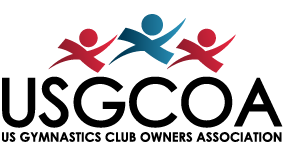Promoting a Healthy Coach-Parent Relationship
Many times, coaches and parents disagree on how to train and treat their gymnasts. To ensure you keep a positive and healthy gym environment in your club, it is crucial to promote a healthy coach-parent relationship. Here are some ways you can help promote an open communication line for parents and coaches in your club.
Display Strong Communication
The first step to creating a strong relationship between coaches and parents is communicating. Communication is the key to strong and lasting relationships. Without it, other areas of the gym will begin to be affected. Taking time to communicate with the parents of your gymnasts shows them that you care about keeping them in the loop about what’s going on in your gym.
All in all, both parents and coaches need to realize that gymnastics is about supporting the gymnasts and what will help them succeed.
There are several ways to ensure communication is practiced between your coaches and the parents, which could include group discussions about:
- Scheduling for competitions & practices
- Your expectations for the gymnasts, including rules and consequences for breaking them
- Plans in case of injury or other emergencies like weather
- Detailed plans for traveling to meets
Allow parents to ask questions and get the answers during informational meetings with your coaching team. It’s better to allow you and your staff spend a significant amount of time answering questions than to allow parents to assume the answers. This can lead to future miscommunications that cause potential issues. Parents should feel comfortable with you or your coaching staff to raise concerns they might have about their children.
Provide Support & Parenting Involvement
When you’re working with sports parents, one thing they love is being involved in the gym. Allowing parents to have input in meet planning and different steps in the preparation process can strengthen the help strengthen the coach-parent relationship.
While you and your staff will be registering teams for competitions, there are other things parents can do to assist in the process like:
- Providing snacks for the gymnasts
- Creating a first aid kit for emergencies
- Assisting with uniforms
- Acting as chaperones during club activities
Parent involvement is essential, but it can also lead to some drama if your coaches don’t set boundaries. Ensure you and your coaching team clarify the club is a positive atmosphere for all athletes, including during competitions and practices.
The way one parent behaves directly represents the club. This means they should refrain from speaking negatively about gymnasts or yelling during meets towards any judges or other competitors. If the parents have a concern they’d like to address, they should communicate this to you or your coaches during a private discussion that doesn’t affect the focus of the gymnasts during competitions and other team-centered events.
Supporting your gymnasts is essential, but your support doesn’t stop there. Support should reach parents as well because, after all, they play a significant role to many gymnasts. They believe in their child’s dream to be the best and want to help them achieve it just as much as your coaches do.
Address Concerns
Your gym should be a safe space where gymnasts come to be trained and get better at their craft. This is challenging to do when there is negativity making its way inside. You should encourage your coaching staff to embrace being open-minded and thinking constructively rather than promoting a negative and closed mind attitude. While working with coaches and parents, you must address concerns that might affect gymnast’s performance or your club. A gymnast must be balanced mentally, emotionally, and physically to fly high and compete at the highest level. Having a plan available to address concerns that include mental health issues and physical challenges for your staff and to parents, can introduce a new point of perspective for them to review together.
If the solutions you offer don’t work, be open to finding a different solution for your staff and parents. Being open to ideas provided by parents and your staff shows you take their opinions seriously because they’re a part of your family. When your concerns are not addressed, it can affect more than just your coaches or parents; it affects everyone. You can’t control everything that takes place in your gym, but you can control the atmosphere you project within your club.
Parents and gymnasts who want to train with you should be clear about how your gym is run, and if they wish to continue this partnership, they’ve got to buy into the mindset you’re building.
Your goal as a club owner is to form a positive and safe environment while still producing successful gymnasts. Clear communication to your coaches and parents is the best philosophy to build respect and sportsmanship. Addressing these points will open the doorway to forming a better coach-parent relationship. If you want to find more tips and advice, such as what you found above, become a member of the United States Gymnastics Club Owners Association.
Together we can create gyms across the world that support gymnasts and their parents.


